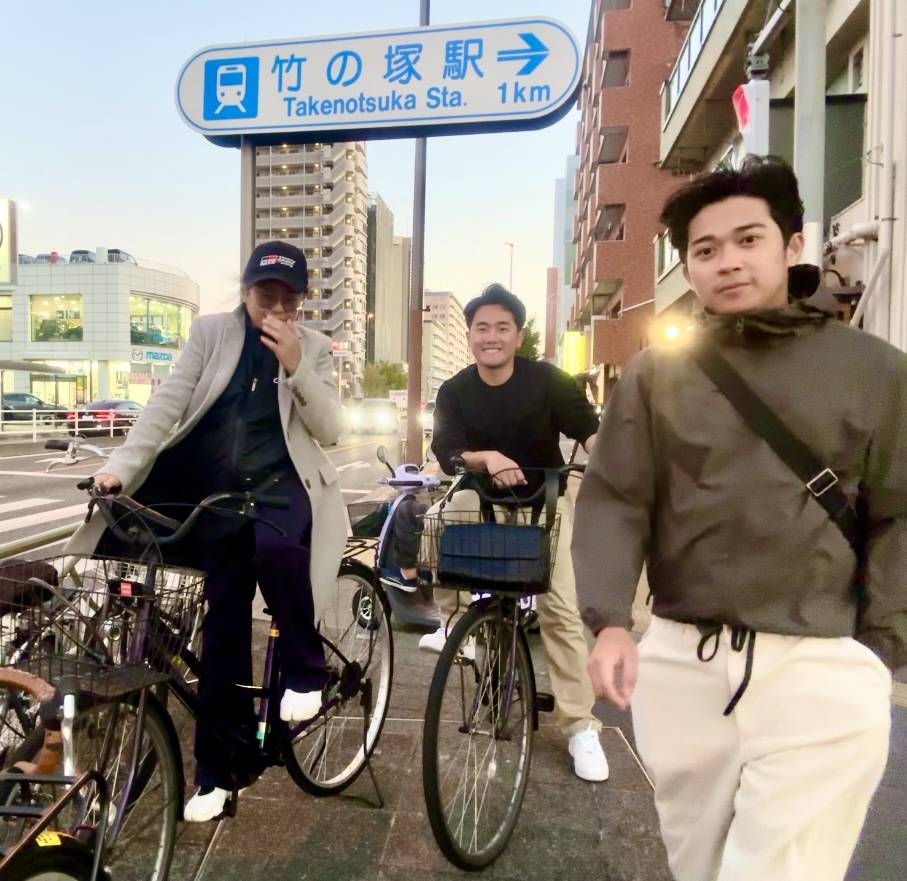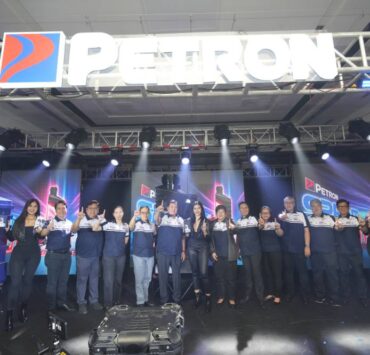Filipino techs in Japan: ‘52 lives at stake with every bus we maintain’

Filipinos Angelo Bonggo and Jeg Podrido, both 25, have been working for three years at the Hino Adachi dealership in Japan.
They are two of 25 scholars from Toyota Motor Philippines School of Technology Inc (TMP Tech) now based in Japan. TMP Tech is a technical training school at the Toyota Special Economic Zone in Santa Rosa, Laguna, which began operations in September 2013.
Both have since graduated from the school, and now work as automotive servicing technicians at the Hino dealership in Adachi.
Toyota Motor Philippines was kind enough to provide their contact details and introduce me online. I met Angelo and Jake on Nov. 3 near their residence and workplace in Tokyo’s Adachi Ward.
From trainees to employees
Angelo shared that they both started as technical intern trainees at Hino Adachi three years ago. Their visas were subsequently renewed as working visas with a 5-year contract.
“Before, we were intern trainees here in Japan. After that, the company still needed us for its manpower. Our visas were renewed as working visas… We are already employees,” said Angelo.
Jeg said they are thankful for their training at TMP Tech.
“We were prepared well by TMP Tech. When we arrived in Japan, we learned the Japanese culture, the Japanese work ethic, discipline, and the quality of work—step by step, no skipping. We really needed to study every detail,” he said.
Jeg added, “The work is challenging, but the experience is rewarding. When you say ‘Japanese quality,’ it means strict adherence to every detail of the work. We also learned how to communicate well with our co-workers.”

‘Lives depend on us’
Angelo said both of them are now assigned to Shaken, Japan’s comprehensive vehicle inspection system. This system ensures roadworthiness by checking safety systems, structural integrity, and emissions, including changing oils, brakes, and filters.
They have been tasked to “take care of Hino trucks, big and small—two tons, four tons, and bigger trucks like buses,” Angelo said.
He added that “the sense of responsibility is huge with trucks and buses.”
Jeg elaborated: “Especially buses. How many passengers for each bus? 52 lives are at stake for every bus that you maintain.”
“We also maintain buses for nursery students. No room for error, especially with children who use them,” said Jeg.
Angelo described a sense of mission.
“It’s not just work to earn. Take to heart what you do, because the lives of those who will ride the vehicles—and pedestrians—depend on us. Everyone should be safe,” Angelo said.
Angelo said he learned “what discipline really is” in his three years in Japan.
“Though we are far from our family, we know what we should or should not do,” he said.
Jeg reflected, “We started here when we were 21 or 22 years old. It was a culture shock, but now I have adapted to Japanese culture—most especially the cleanliness of the environment.”
Angelo agreed. “The culture of cleanliness… No garbage can be seen, such as cigarette butts. You would be ashamed of yourself if you were to litter. That’s a value I will carry with me to the Philippines”
“When it comes to work,” Angelo added, “the priority is quality that you can be proud of. The customer’s trust and satisfaction are my gauge.”
Bringing skills home
Jeg hopes to one day bring his skills back to the Philippines. He said he would “want to be part of the quality control of Toyota Motor Philippines’ main branch or a big dealership someday,” adding that he is “working hard to meet the Japanese standard quality.”
“If given a chance, I want to contribute to a higher quality service. Toyota, even in the Philippines, is known for quality. I would like to enhance that quality of work some more,” said Jeg.
For aspiring automotive technicians, Angelo shared this advice: “To our fellow youth who are dreaming to work in Japan… It’s not too late. You can enhance your skills, study in school, and supplement them online. But those are theories. When you have a chance to go hands-on, you can apply them. You can level up as an automotive technician.”
Jeg concluded, “To the young Filipinos, please secure your future. We are not always young. There will come a point where we need to work—for our family, for our future.”
Training for global competitiveness
The TMP school of Tech is a non-stock and non-profit educational institution geared towards “transforming the Philippines into a human resource development hub to meet the needs of Global Toyota.”
TMP Tech is “specifically established for the training of after-sales technicians who will be deployed in service centers both here and abroad.”
According to the official TMP website, TMP Tech continues to believe “in the capabilities of Filipino workers who have long been sought after as skilled talents throughout the globe. It recognizes Filipinos as quick learners with good communication skills, technical aptitude, and a positive working attitude. In doing so, Toyota will help empower the Filipino people, giving them a shot at careers that will not only lead to sustainable livelihood, but will also bring out the very best of their abilities.”





















